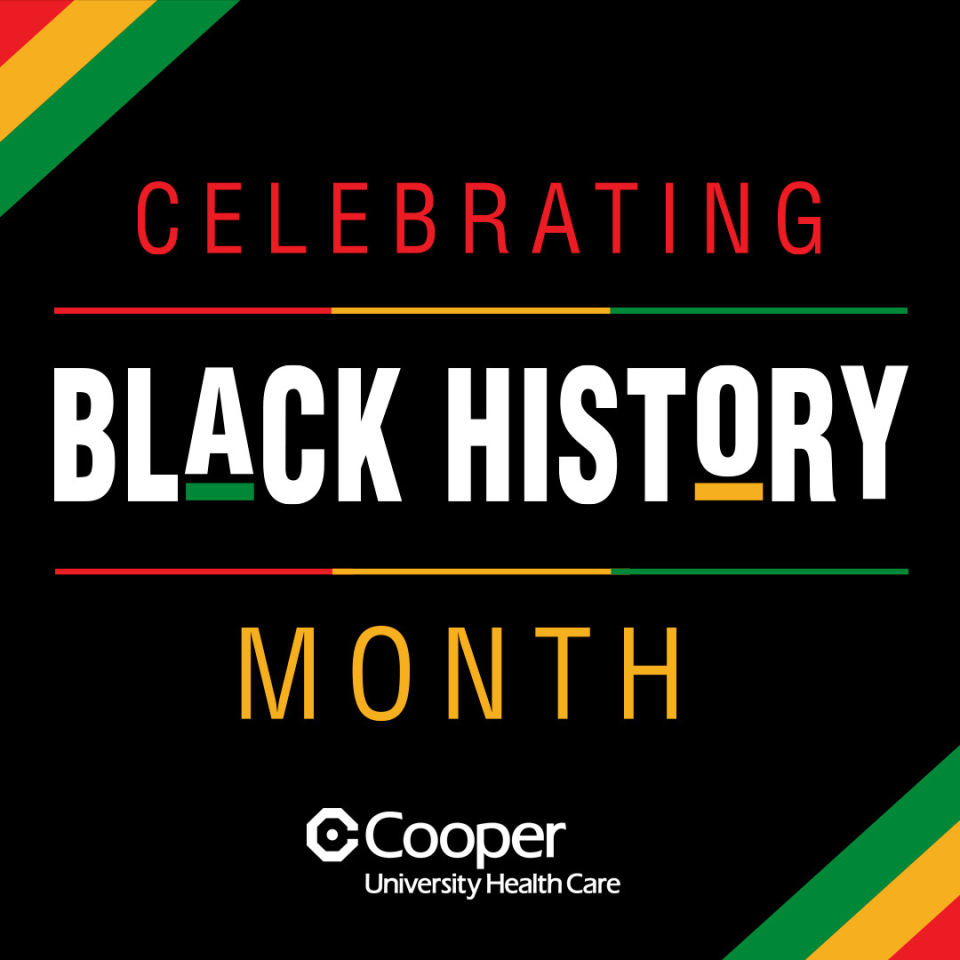At Cooper, we celebrate Black History Month to recognize and honor the contributions and achievements of African Americans throughout history. It provides an opportunity to acknowledge the significant impact that Black individuals and communities have had on various aspects of society, including culture, science, politics, and the arts.
Join Us in Celebrating Black History Month at Cooper
- A special Black History Month cafeteria lunch menu will be offered every Wednesday at Cooper University Hospital and Cooper University Hospital Cape Regional for the month of February.
- We encourage you to use Pulse+ to share your reflections during Black History Month. Please share your thoughts on Black culture, contributions, and achievements.
- You can also test your knowledge of Black history with our Pulse+ quiz. Check Pulse+ each week for new questions. Everyone who answers a question correctly will be entered into a prize drawing.
Learn More:
The celebration originated in the United States, where it takes place every February. It was established by historian Carter G. Woodson and the Association for the Study of Negro Life and History (ASNLH) in 1926, initially as “Negro History Week.” The idea was to raise awareness and promote the study of Black history. It later expanded to a month-long celebration in 1976, coinciding with the birthdays of Abraham Lincoln and Frederick Douglass.
Black History Month serves as a reminder of the struggles for equality and justice faced by African Americans and highlights the resilience, creativity, and contributions that continue to shape the nation’s history and future. It’s a time to educate, reflect, and celebrate the rich and diverse history of the Black community.
The Association for the Study of African American Life and History has determined the 2025 Black History theme is African Americans and Labor. The history of labor and Black Americans is deeply intertwined and reflects a complex journey of struggle, resilience, and achievement.
Early History:
- Enslaved African Americans were forced to work in brutal conditions, primarily in agriculture and plantations.
- After the Civil War and the abolition of slavery, many Black Americans faced sharecropping and tenant farming, which were exploitative systems that kept them in poverty.
20th Century and the Great Migration:
- The Great Migration (1916-1970) saw millions of Black Americans move from the rural South to urban areas in the North and West, seeking better job opportunities and escaping racial violence.
- Despite facing discrimination and segregation, Black workers contributed significantly to industrial growth, especially during World War I and World War II.
Civil Rights Movement and Labor:
- The civil rights movement of the 1950s and 1960s also highlighted labor issues, with leaders like Martin Luther King Jr., advocating for economic justice and workers’ rights.
- The 1963 March on Washington for Jobs and Freedom underscored the connection between civil rights and labor rights, demanding fair wages and employment opportunities.
Modern Era:
- Black Americans have continued to fight for fair labor practices, combating systemic racism and economic disparities in the workforce.
- Black labor unions and organizations, such as the National Black Workers Center Project, have played a crucial role in advocating for workers’ rights and economic justice.
This summary captures some key aspects of the complex relationship between labor and Black Americans, showcasing their ongoing struggle for equality and justice in the workforce.

